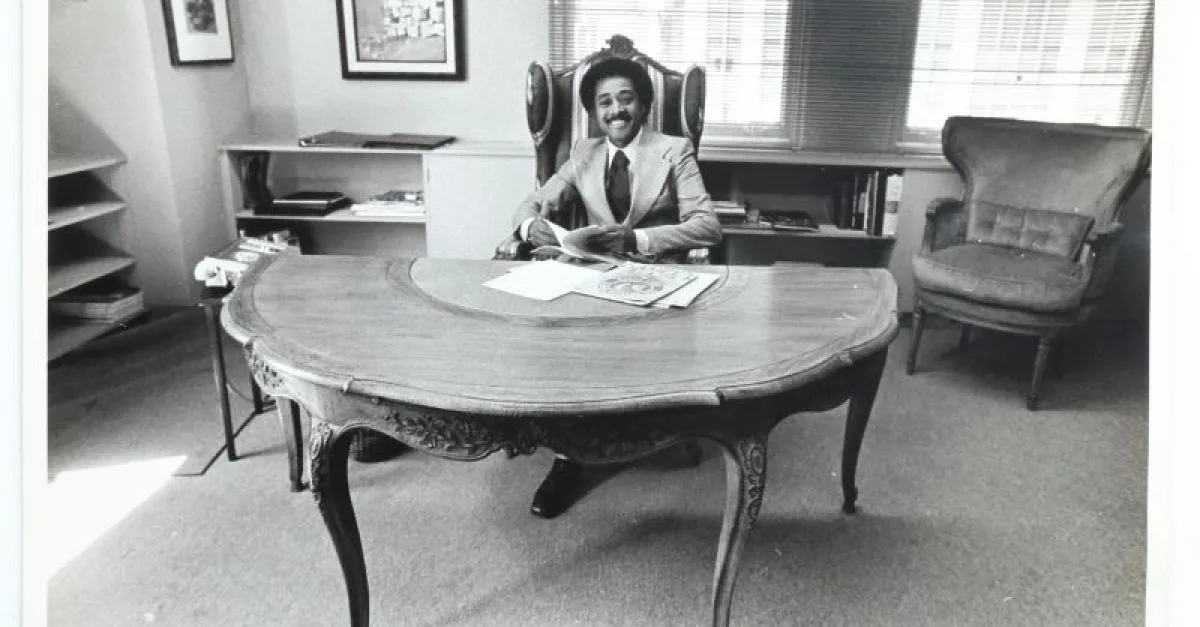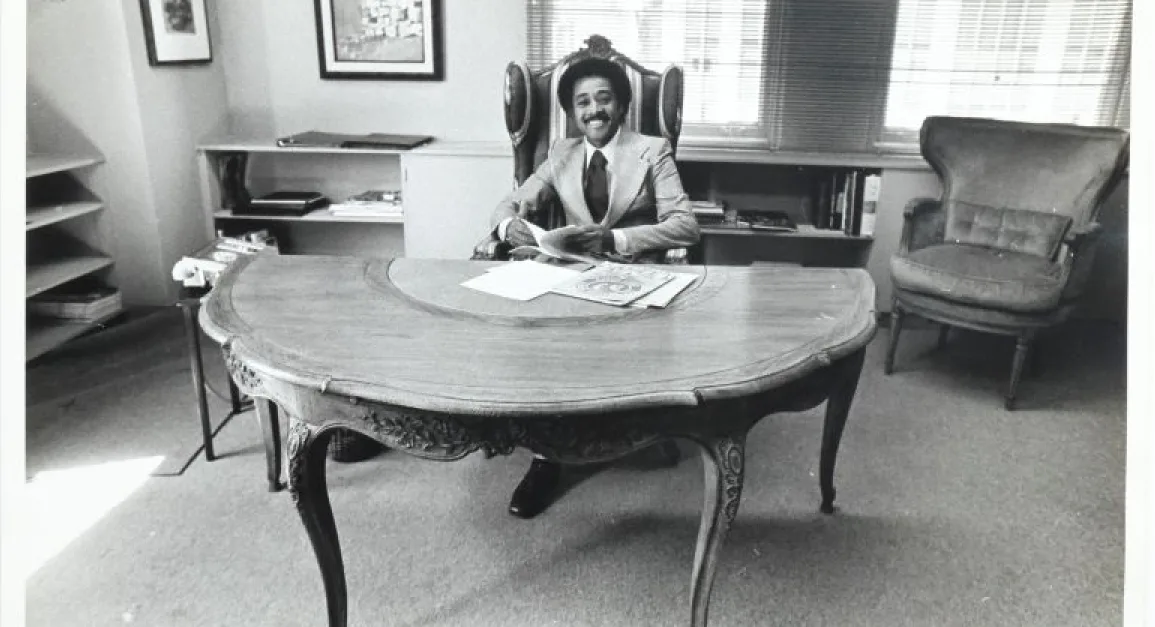
The Smithsonian’s National Museum of American History is marking the significant impact of UniWorld Group advertising founder Byron Lewis (born 1931) with the addition of materials from his pioneering career to the national collections in a New York donation ceremony Oct. 5.
Lewis founded UniWorld in 1969 to champion multicultural advertising and promote the interest of Black and Latina/o consumers. He and UniWorld took the American market by storm, creating muti-media advertisements for clients such as Mars Inc., Metro-Goldwyn-Mayer, AT&T, Stax Records, Avon, Ford Motor, Quaker Oats Company, Burger King, the U.S. Marines and more.
Through his creation and leadership of a groundbreaking agency that prioritized the Black consumer market, Lewis became known as the “Godfather of Multicultural Marketing” and was referred to as the “Original King of Black Media” by the New York Times.
The donation includes objects that reflect the history of UniWorld and related businesses, as well as those related to Lewis’ personal story, including a Boy Scouts award, high school yearbooks and his Omega Psi Phi fraternity paddle. Items from Lewis’ advertising career include the three swords gifted to him for his historic Mars Inc. “3 Musketeers” chocolate bar campaign, agency achievements, awards, campaigns and photographs with key clients as well as archives, publications, scripts and artwork. Pictured in numerous magazine profiles, his office displayed African artifacts and the visual and sculptural work of noted African American artists.
This rich collection that includes archives and artifacts reveals a throughline of creative storytelling, both as reflected in his advertising career and in the materials that framed his interior office décor, and together, they characterize Lewis’ intersectional worldview,” said Fath Davis Ruffins, curator in the museum’s Division of Home and Community Life.
Lewis’ personal and business oeuvre put him in the mainstream of a cultural shift for African Americans in the mid-20th century, including at the crest of the Civil Rights Movement.
Born in Newark, New Jersey, Lewis grew up in Queens, New York. He graduated from Long Island University with a journalism degree and was honorably discharged from the U.S. Army in 1955. Despite his credentials, Lewis could not find a media position and spent years working odd jobs, from janitor to office worker. In Harlem, he found opportunities, including selling advertising for Black-owned publications. He co-founded The Urbanite, a Harlem magazine staffed by notables such as James Baldwin and Langston Hughes. Lewis also created the nation’s first Black radio soap opera, Sounds of the City.
Describing his life and work as dedicated “to changing the image of Black people in American life,” Lewis supported and promoted African American artists, filmmakers, activists and politicians. His work included promotional campaigns for the 1971 film Shaft; co-directing the National Black Political Convention in 1972; becoming the owner and producer of “America’s Black Forum,” the nation’s first syndicated Black TV news show; and promotions for African American cultural centers and museums such as the Apollo Theater, the Schomburg Research Center, the African Burial Ground project and Black arts festivals and HBCUs (Historically Black Colleges and Universities). His international work was in the Caribbean and Africa. Lewis designed and donated the Nelson Mandela Presidential Medallion, a gold coin minted in South Africa in 1994. In 2013, Lewis was inducted into the Advertising Hall of Fame by the American Advertising Federation.
Lewis’ contributions to the nation’s business history will be on view beginning Oct. 17 in the museum’s “American Enterprise” exhibition in the Mars Hall of American Business, which immerses visitors in the dramatic arc of labor, power, wealth, failure and success. “Byron Lewis: Ad King Extraordinaire,” will span two cases and his story will debut with that of kitchen table entrepreneur and self-made millionaire Lillian Vernon. Among the artifacts on view will be his antique French provincial office desk and chair, a gray suit with pink shirt and coordinating tie worn in the 1970s, the three swords from the Mars Black-consumer candy campaign, numerous awards and artworks. Lewis’ papers can be found here and the Archives Center is compiling a Byron Lewis Collection Finding Aid.
“American Enterprise” features a number of advertising agency stories, including those of various multicultural agencies, such as the Black-owned Zebra Associates, founded in 1969, and that of Carolyn Jones as well as from Hispanic agencies, including Zubi, founded by Tere A. Zubizarreta in 1976, and Sosa, Bromley, Aguilar & Associates, founded in 1981.
Through incomparable collections, rigorous research and dynamic public outreach, the National Museum of American History seeks to empower people to create a more just and compassionate future by examining, preserving and sharing the complexity of our past. The museum, located on Constitution Avenue N.W., between 12th and 14th streets, is open daily except Dec. 25, between 10 a.m. and 5:30 p.m. Admission is free. The doors of the museum are always open online and the virtual museum continues to expand its offerings, including online exhibitions, PK–12 educational materials and programs. The public can follow the museum on social media on Twitter, Instagram and Facebook. For more information, go to https://americanhistory.si.edu. For Smithsonian information, the public may call (202) 633-1000.
###
SI-288-2023


